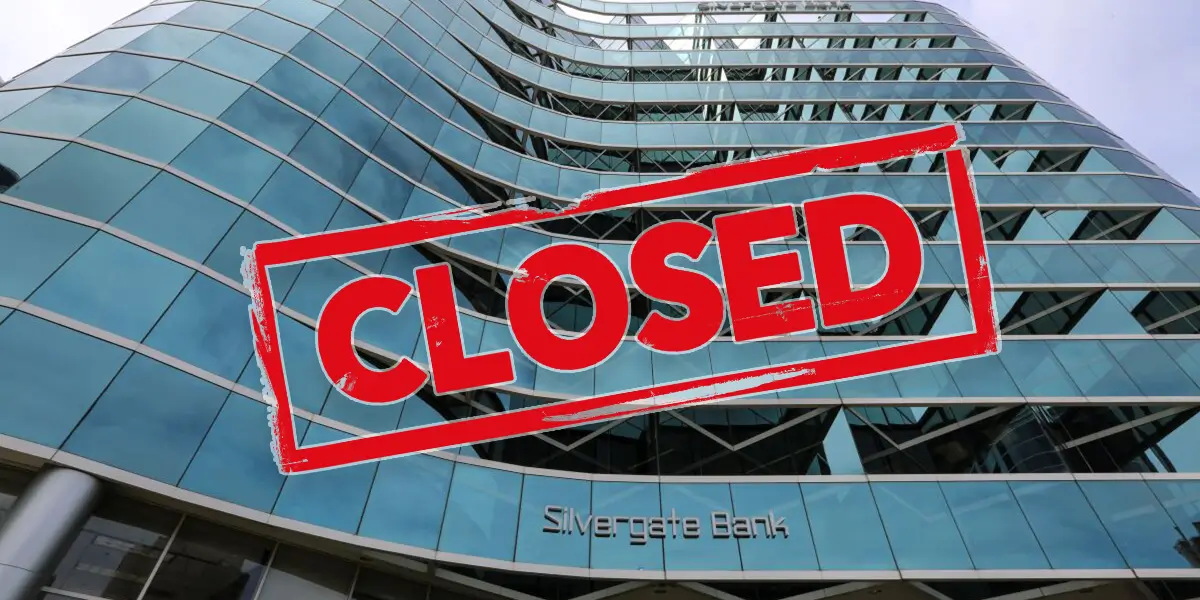Company Behind Silvergate Bank Files for Chapter 11 Bankruptcy
19.09.2024 10:30 1 min. read Alexander Stefanov
Silvergate Capital Corporation, the parent entity of Silvergate Bank, has entered Chapter 11 bankruptcy proceedings in Delaware.
As of September 17, the company’s filing reveals assets between $100 million and $500 million and liabilities ranging from $10 million to $50 million. The bankruptcy also involves Silvergate’s affiliates, Silvergate Liquidation Corporation and Spring Valley Lots LLC.
Under its Chapter 11 plan, Silvergate aims to address various debts, including administrative and high-priority claims, in full. However, it proposes to cancel certain claims tied to common stock and securities lawsuits. Internal company debts are slated for reinstatement, while preferred shareholders will receive partial payments based on their holdings.
This move follows the bank’s closure due to liquidity issues 18 months ago. Silvergate attributed its downfall to the banking sector’s strain from rising interest rates and heightened regulatory scrutiny post-FTX collapse. In March 2023, the company decided to liquidate Silvergate Bank, citing these challenges.
Despite its close ties with the crypto sector, Silvergate faced a significant blow in confidence after FTX’s collapse. The SEC sued the bank in July for allegedly facilitating fraud at FTX, though the Federal Reserve Board later dropped charges following Silvergate’s successful wind-down and customer reimbursements.
-
1
Trump Imposes 50% Tariff on Brazil: Political Tensions and Censorship at the Center
10.07.2025 7:00 2 min. read -
2
Key Crypto Events to Watch in the Next Months
20.07.2025 22:00 2 min. read -
3
USA Imposes Tariffs on Multiple Countries: How the Crypto Market Could React
08.07.2025 8:30 2 min. read -
4
UAE Regulators Dismiss Toncoin Residency Rumors
07.07.2025 11:12 2 min. read -
5
Ripple Selects BNY Mellon as Custodian for RLUSD Stablecoin Reserves
09.07.2025 15:28 2 min. read
Two Upcoming Decisions Could Shake Crypto Markets This Week
The final days of July could bring critical developments that reshape investor sentiment and influence the next leg of the crypto market’s trend.
Winklevoss Slams JPMorgan for Blocking Gemini’s Banking Access
Tyler Winklevoss, co-founder of crypto exchange Gemini, has accused JPMorgan of retaliating against the platform by freezing its effort to restore banking services.
Robert Kiyosaki Warns: ETFs Aren’t The Real Thing
Renowned author and financial educator Robert Kiyosaki has issued a word of caution to everyday investors relying too heavily on exchange-traded funds (ETFs).
Bitwise CIO: The Four-Year Crypto Cycle is Breaking Down
The classic four-year crypto market cycle—long driven by Bitcoin halvings and boom-bust investor behavior—is losing relevance, according to Bitwise CIO Matt Hougan.
-
1
Trump Imposes 50% Tariff on Brazil: Political Tensions and Censorship at the Center
10.07.2025 7:00 2 min. read -
2
Key Crypto Events to Watch in the Next Months
20.07.2025 22:00 2 min. read -
3
USA Imposes Tariffs on Multiple Countries: How the Crypto Market Could React
08.07.2025 8:30 2 min. read -
4
UAE Regulators Dismiss Toncoin Residency Rumors
07.07.2025 11:12 2 min. read -
5
Ripple Selects BNY Mellon as Custodian for RLUSD Stablecoin Reserves
09.07.2025 15:28 2 min. read


